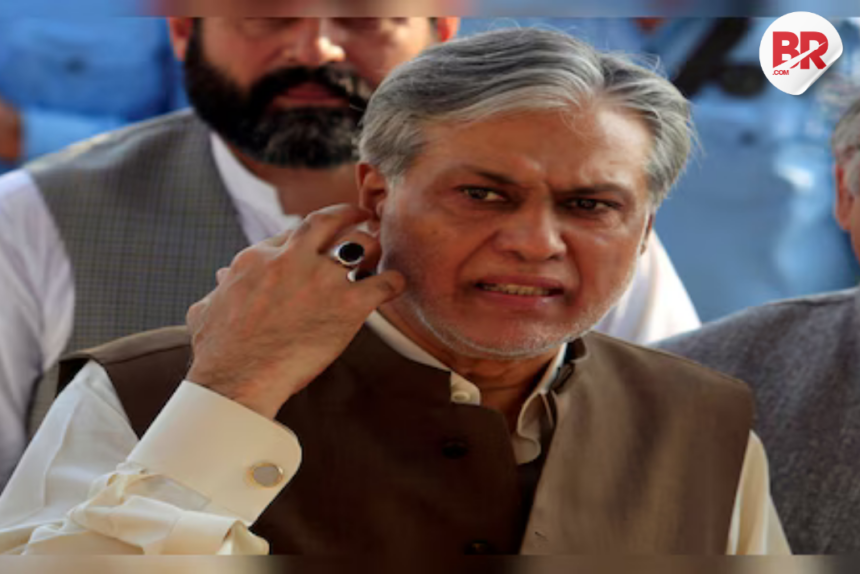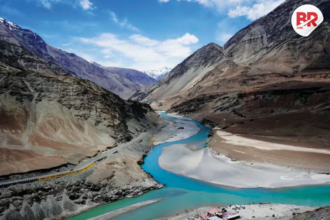
A deadly terror attack in Pahalgam, Jammu and Kashmir, took the lives of 26 innocent civilians, mainly tourists, leaving families shattered. Now, Pakistan’s Deputy Prime Minister Ishaq Dar has fueled the flames of anger by calling the attackers “freedom fighters.”
This shocking remark has sparked outrage in India and worldwide, raising serious questions about Pakistan’s stance on terrorism.

What Does This Mean for Us?
To put it simply: Ishaq Dar just tossed a lit match into a powder keg. With tensions already high between India and Pakistan, his comment is like throwing gasoline on a fire. It’s not just about words—it’s about the very essence of India’s sovereignty and the memory of lives lost.
By endorsing these attackers as “freedom fighters,” Dar is doing more than backing terrorism; he’s celebrating it. His statement is a slap in the face of the families grieving their loved ones and a direct challenge to India’s resolve in the fight against terror.
Also Read Markets in Freefall: Karachi Stock Exchange Drops Amid Growing India-Pakistan Tensions
SHAMEFUL : Pakistan called Terrorists “Freedom Fighters”
Two words for Pakistan?pic.twitter.com/FuJKFwMWYX
— Times Algebra (@TimesAlgebraIND) April 24, 2025
The Irony Is Palpable
Here’s the kicker: Pakistan, a country that has repeatedly been called out for harboring terror groups, is now giving a public endorsement to the very violence that destabilizes the region.
The world is watching—and it’s hard to believe that anyone can take Pakistan’s claim of “fighting terrorism” seriously while its Deputy Prime Minister is so openly praising terrorists. The irony is rich. For a country that condemns terrorism on one hand, it’s shameful to see officials actively glorifying it with the other.
This is not just about a rogue statement from a single politician. It’s indicative of Pakistan’s broader approach to dealing with terrorism—a reluctance to confront the reality of their role in exacerbating violence in the region.
Dar’s comments come at a time when the world has been pushing for more accountable action against terror groups. By calling the attackers “freedom fighters,” Dar is stoking the flames of extremism, making it harder for peace advocates to find a middle ground.
India’s Furious Response
India, unsurprisingly, has reacted with fury. Officials are calling Dar’s statement “unacceptable,” with the Ministry of External Affairs likely to summon Pakistan’s High Commissioner. The backlash is not just political; it’s personal. Families who lost loved ones in Pahalgam now face the added pain of seeing their loved ones’ murderers praised as heroes. India’s response will likely be swift and firm.
But here’s the catch: this isn’t just about issuing statements or withdrawing diplomats. It’s about showing the world that Pakistan’s rhetoric has real consequences. This isn’t an isolated incident—it’s part of a long-standing pattern. The international community must hold Pakistan accountable for its role in perpetuating terrorism.
The Regional Impact: A Dangerous Precedent
Dar’s words will resonate far beyond diplomatic corridors. Here’s why: such statements have the potential to embolden terrorist groups operating along the Line of Control (LoC). The glorification of violence increases recruitment and fuels further militancy.
Meanwhile, regional initiatives like SAARC (South Asian Association for Regional Cooperation) could take a major hit, as trust between member nations erodes.
The security situation in the region could worsen, with military activity along the LoC likely to increase. If this rhetoric persists, the already fragile peace in the region could collapse entirely.
What Needs to Be Done?
The question now is: what can be done? Pakistan has a choice—either backtrack and disown Dar’s comments or double down on them. But one thing is clear: the world is watching, and inaction will only allow the situation to escalate. The Indian government must continue to stand firm and take this issue to international forums. But it’s not enough to merely condemn the words.
Real, lasting peace will only be achieved when both nations choose to confront terrorism head-on, with concrete actions, not just words.
The Bottom Line
Pakistan’s recent comments aren’t just an embarrassment—they’re a call to action. India can no longer afford to tolerate terrorism being praised by its neighbor. This diplomatic firestorm may be one of the biggest tests for India’s leadership in recent years. It’s time to show the world that terrorism, in all its forms, will not be tolerated.
Also Read India-Pakistan Relations on the Brink: Pahalgam Attack Pushes Tensions to Explosive Limits












